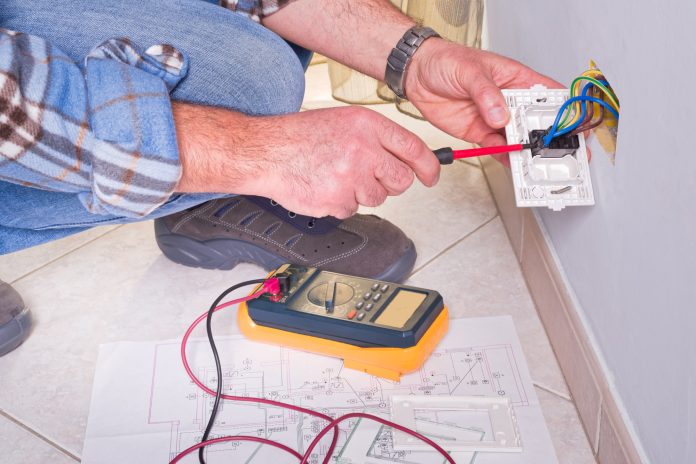Electricians get categorized into a wide range of different types, from industrial electricians to commercial electricians. Members of the two varieties may also be referred to by other names, although the difference between these is usually situational. There are key differences to keep in mind when determining which type of electrician you need for your next project.
Bates Electric enlightens us on the difference between an industrial electrician and a commercial electrician according to the equipment needed to do the job. Commercial installations are larger and more complex than industrial ones and may require slightly different skills. Both can be dangerous if the professional is not trained properly (although there is more danger in industrial work). An industrial electrician is needed for permanent or temporary construction facilities and on-site building, system expansion, and troubleshooting. A commercial electrician gets required in office buildings, public schools, retail stores, and other places where multiple companies share similar facilities.
Difference Between An Industrial And Commercial Electrician
There is a great deal of confusion between industrial and commercial electricians in the general public. It is because both types of electricians often perform similar tasks. It is important to understand the difference between these two different types of electricians, however, as you will be able to find each type at a higher frequency in either commercial or industrial buildings.
While some of their tasks may be alike, significant differences between the two types of electricians set them apart. Understanding these differences will help you determine which type of electrician you need for your electrical project.
Industrial Electricians Work on Larger Projects with Heavy Machinery and Equipment
These projects typically last longer than those that a commercial electrician would perform. They also tend to be more complex due to the item’s size or project getting worked on. An industrial electrician may get required for installation or repair jobs, including high-voltage transformers inside warehouses or on a factory floor, large-scale motors and generators, and cable trays used for moving electricity from one point to another over long distances (also known as power ducts). Industrial electricians may also work on electrical installations involving large wiring or wiring configurations.
Generally speaking, industrial electricians work in manufacturing plants or other facilities where large equipment is used, and the electrical needs are specific to that industry. They may also work at hospitals or other institutions, but these places tend to be more specialized. Commercial electricians may do similar jobs, but the main difference is that they often work for private companies. They may also get contracted to work on residential buildings with a commercial function, like a school or office buildings.
Industrial electricians need a broad knowledge of the theory behind how electricity works and practical hands-on experience with a wide range of equipment. The workplace is often physically demanding, frequently requiring constant climbing, crawling, and reaching. The work may be hazardous if the industrial electrician works at heights or near moving machinery. On the other hand, a commercial electrician installs and maintains lighting systems within buildings used for office or retail purposes. They do most of their work indoors rather than out in the field. In many cases, a commercial electrician works as part of a larger team, closely coordinating with architects and building owners to ensure that all aspects of a new building are fully functional once construction is complete.
Similarities Between Commercial and Industrial Electricians
Both types of workers usually deal with wiring, installing electrical systems, and possibly repairing them when they need them. They both need to be familiar with an entire array of standards and regulations related to electrical systems and know-how to follow them to ensure that their workplace is safe and up-to-date. In addition to that, both kinds of electrical workers need to be able to follow blueprints and schematic drawings for specific jobs and test certain circuits as part of their overall duties.
However, industrial electricians probably have less variety in their career paths than commercial electricians. While commercial electricians might do anything from wiring all the computers at a company headquarters to set up machines and electrical systems at factories, industrial electricians have a much
The easiest way to understand the difference between an industrial and commercial electrician is to know that they each have different duties and responsibilities. In the United States, industrial and commercial electricians get licensed by their states. The licensing requirements may vary slightly, but the most important thing is that both professions have their skills, tools, and duties. The difference between an industrial and commercial electrician is that the industrial electrician works in more significant buildings such as warehouses, factories, and barns. Commercial electricians work in downtown areas of large cities working with businesses ranging from small office complexes to 15-story buildings complete with elevators and escalators.










